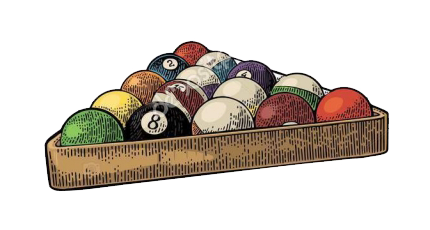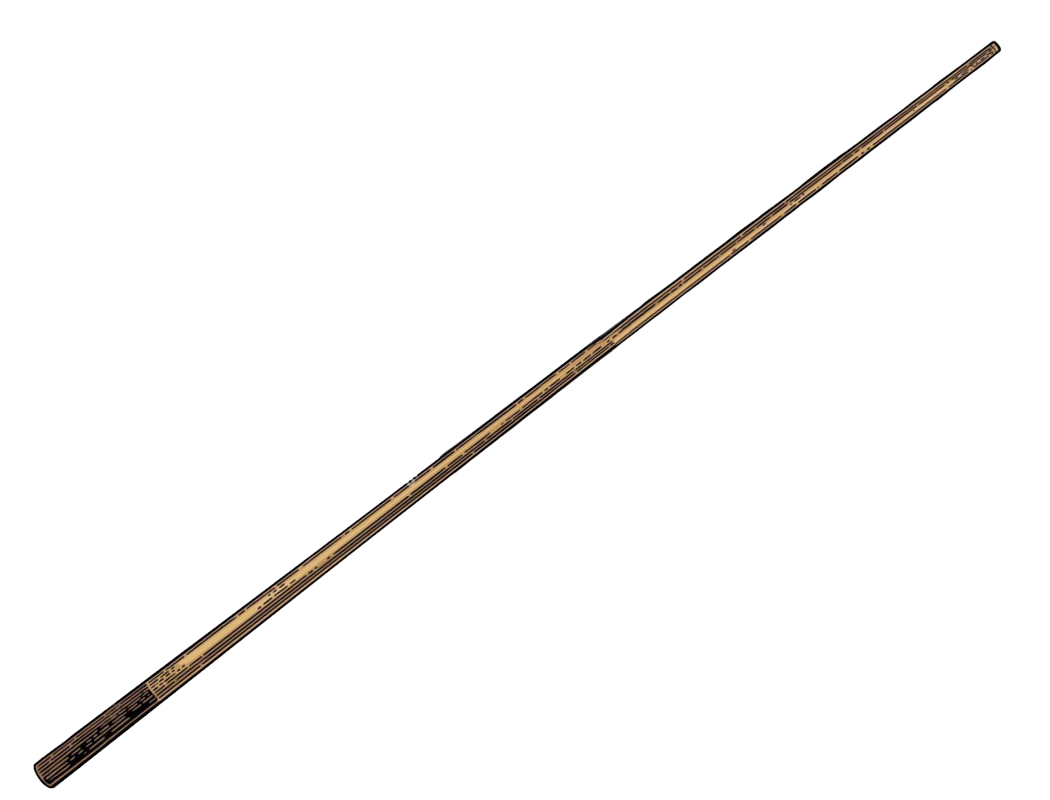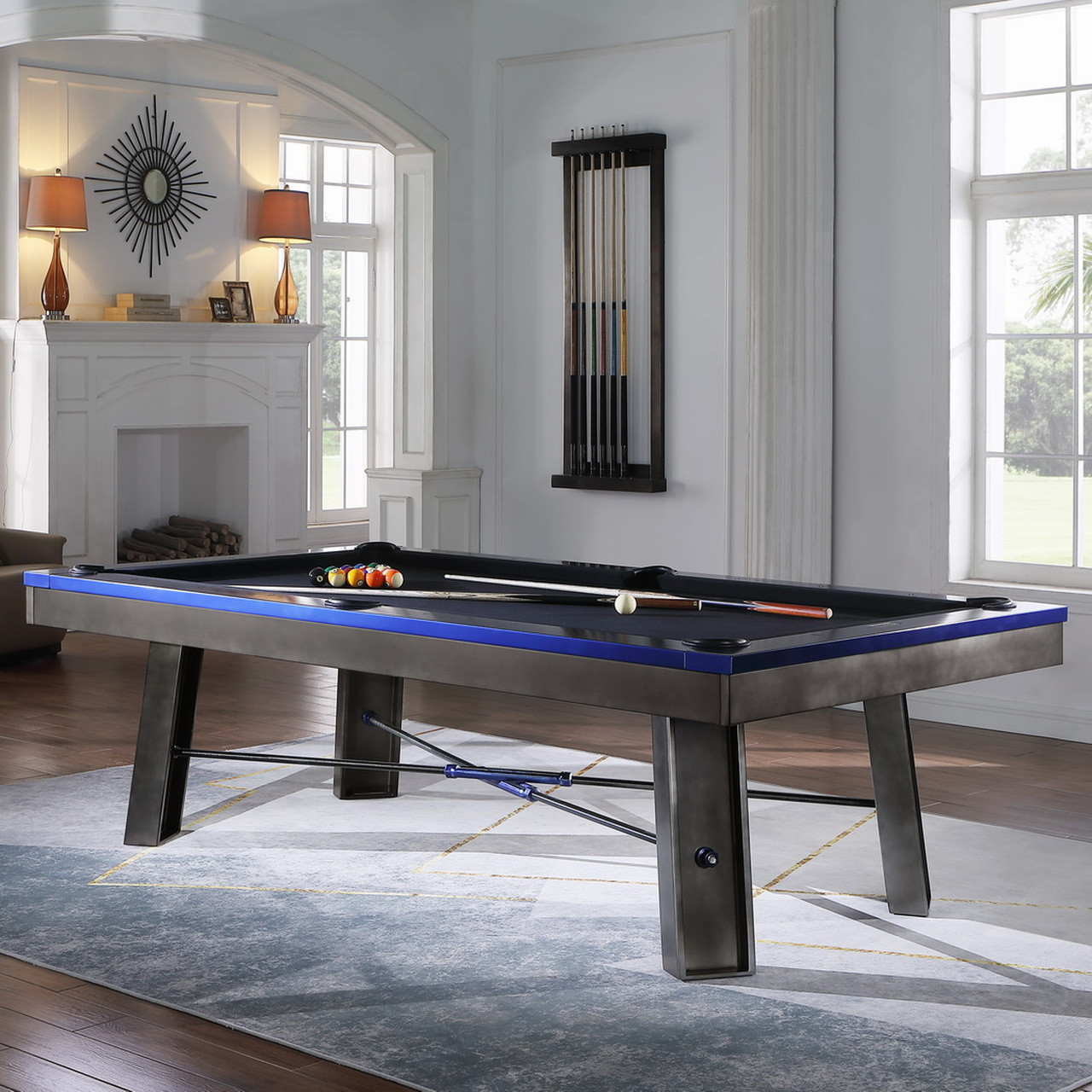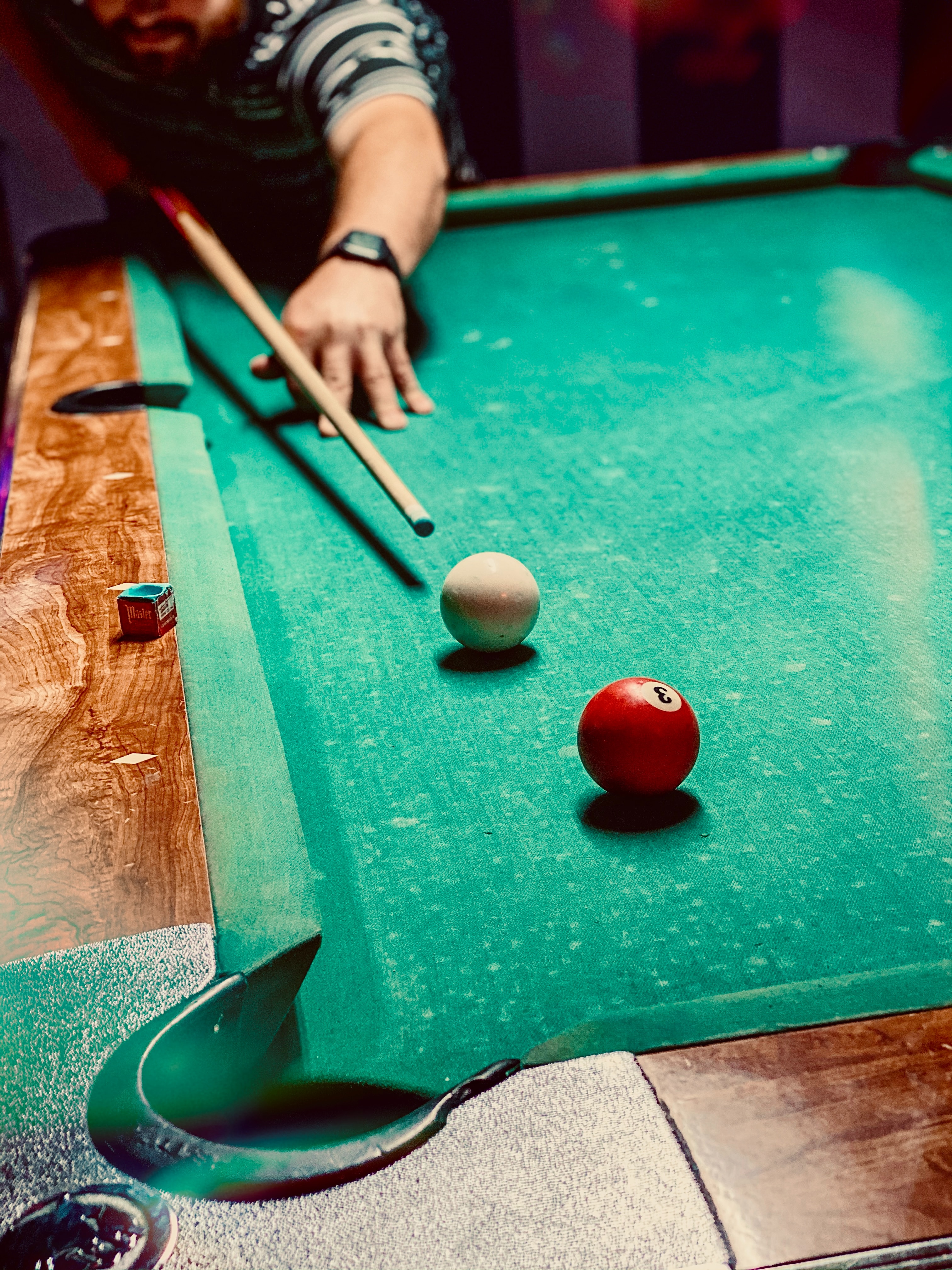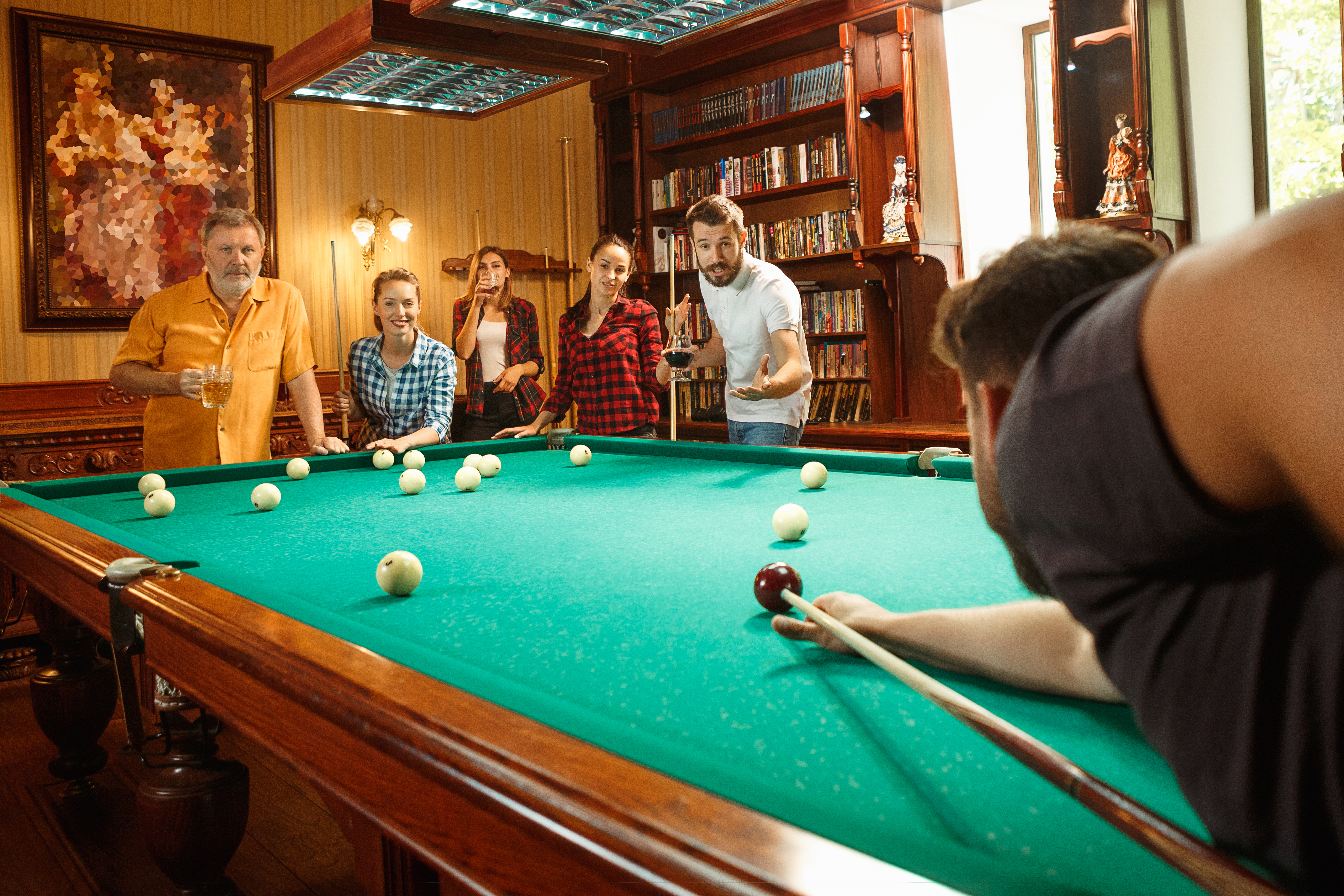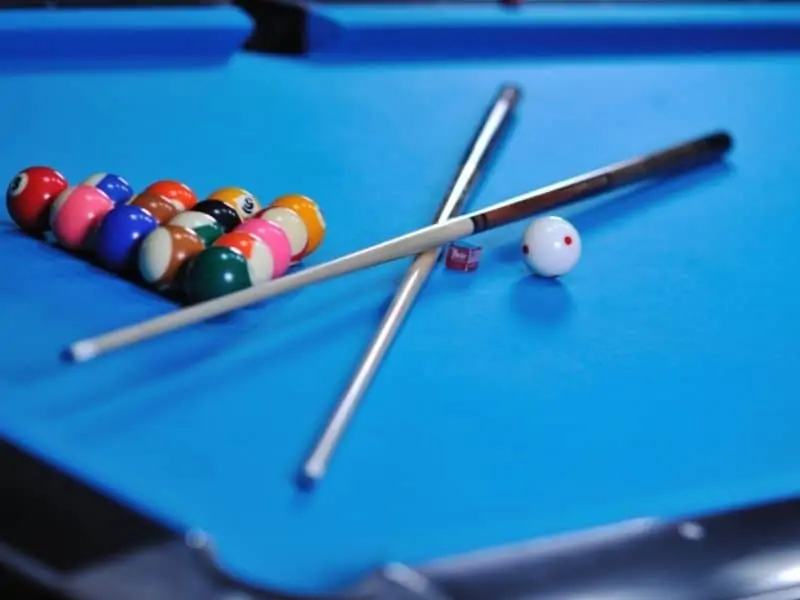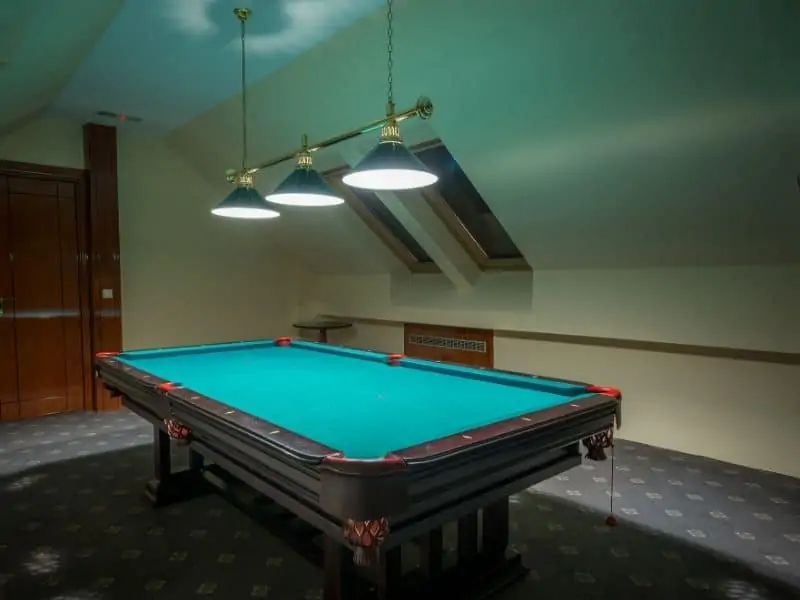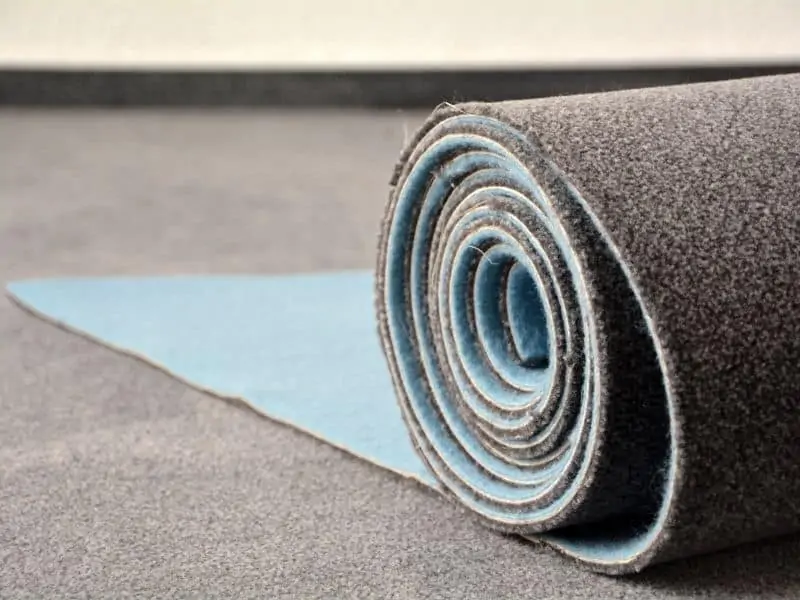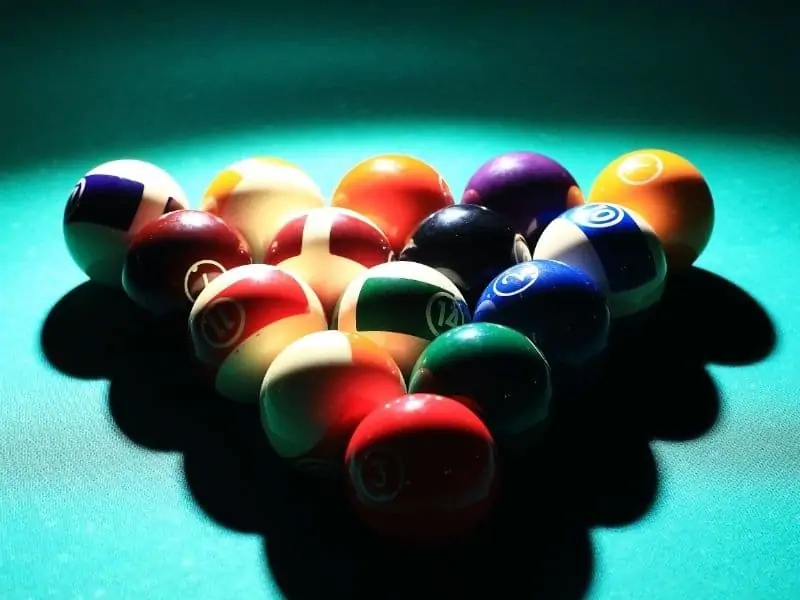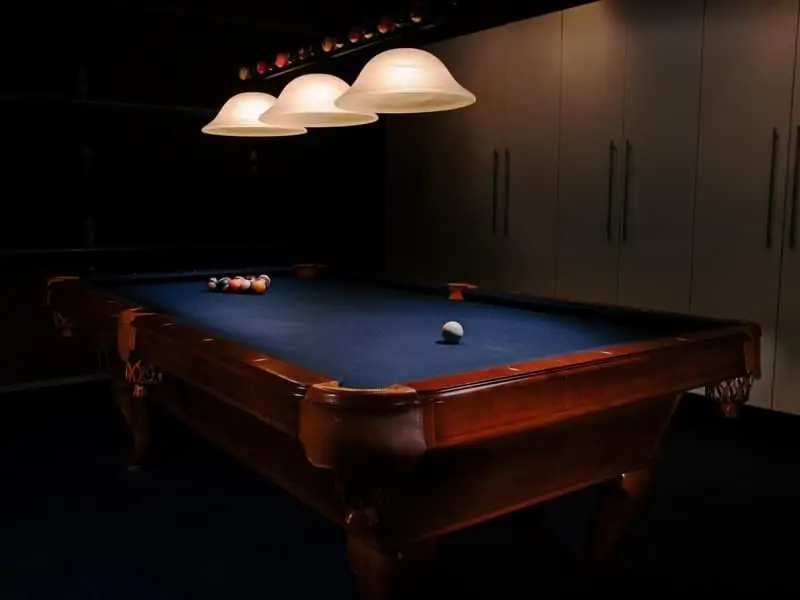The Big Decision: Slate or Wood Pool Table?
For aspiring pool enthusiasts looking to create their very own billiard room, the debate between choosing a slate or wood bed table often takes center stage. With slate tables reigning in popularity and desirability over their MDF (wood) counterparts, many are left pondering, “Should I buy a slate or wood bed table?” The answer, however, is not always simple.
Slate Tables: A Premium Choice
Slate tables are not only known for their supremacy in the pool world but also for their steep price tags. This is because they offer some inherent features that just can’t be matched by an MDF version. But are they worth the expense?
Affordable MDF: A Budget-Friendly Alternative
On the other side of the spectrum, the affordability of MDF tables opens up the opportunity for virtually everyone to indulge in the pleasure of owning a pool table. How do you weigh this convenience against the premium features of slate?
Which Table Is Right for You?
The perfect choice ultimately depends on your unique needs as a player. For casual players aiming for enjoyment without breaking the bank, an MDF table is an excellent option. Conversely, competitive players seeking to enhance their skills will find the slate table’s consistent playing surface to be a valuable investment.
Understanding Your Needs Whether you’re looking to improve your skills as a pool shark or simply seeking a budget-friendly option for fun-filled evenings, understanding the differences between slate and wood bed pool tables will empower you to make the right choice for your personal needs.
In the sections to follow, we’ll dive into the nuances of both types of tables, enabling you to make an informed decision that aligns with your desires and budget. Let’s explore the world of slate and wood pool tables to find the one that’s perfect for you.
What’s The Difference Between Slate Bed And Wood Bed Tables?
A slate bed pool table, or slate table for short, is simply a pool table that uses slate for its playing surface. A wood bed table is one that uses MDF (medium-density fiberboard) for its playing surface. Slate is more expensive and is used on high quality tables while MDF is used as a more budget friendly option.
This brings us to the topic of …
Affordability: Understanding the Cost Factor
The Price Range
As we consider any purchase, cost inevitably becomes a factor. This principle holds true when buying pool tables. Slate tables, known for their premium quality, can range from over $1000 to a staggering $10,000 for a 4×8 table. Compare this to an MDF table of similar size, costing around $500, and you’ll quickly understand why budget-conscious buyers gravitate towards MDF.
Why the Big Difference in Price?
- Sourcing and Shipping: Most slate used in pool tables comes from overseas, making it pricier than local MDF. After sourcing, it must be shaped, packaged with other components, and shipped – a costly process considering its heavy weight.
- Quality of Materials: Due to slate’s weight, the table must be constructed from stronger, higher-quality materials, thus increasing the cost.
- Custom Options: Custom tables with top-of-the-line slate can make prices skyrocket.
- Benefits of MDF: MDF is lighter and cheaper to produce. This, combined with the use of less robust materials, keeps MDF tables relatively inexpensive, making them an appealing choice for those wanting a personal table without a significant investment.
Playability: The Player’s Experience
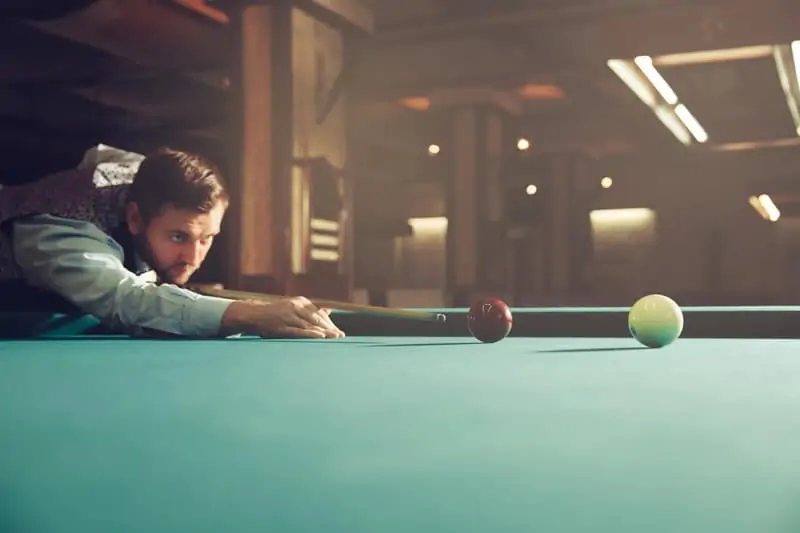
The Feel of the Game
Pool purists will attest to a noticeable difference between playing on slate vs. MDF tables. Slate tables offer a smoother, faster play, while MDF tables may exhibit some “drag”, affecting the ball’s travel distance.
Adjusting to Differences
A transition from slate to MDF can be an initially annoying experience that requires adaptation.
Warping: A Key Concern
Warping is primarily an issue with MDF tables, as they are susceptible to temperature changes and moisture. A spill or damp environment may lead to warping, making competitive play impossible. With slate, this is rarely a concern, since slate doesn’t absorb moisture and the tables are made of stronger materials. The resilience of slate is a significant selling point for serious players and those seeking longevity.
Portability: Moving and Storing Your Table
MDF Tables: Lightweight and Flexible
MDF tables, being lightweight, are easier to move and assemble. Some MDF tables even have foldable legs, allowing for easy storage – an impossibility with heavy slate tables.
Slate Tables: Set It and Forget It
Slate tables fall into the category of heavyweight items best left stationary. Moving one, even when disassembled, requires professional handling. A single slate piece can weigh between 500-600 pounds, and a 3-piece top can weigh up to 250 pounds apiece!
A Word of Caution
Attempting to move and install a slate table yourself can lead to serious damage or injury. It’s highly recommended to employ trained professionals for the delivery and installation of a slate table. The potential risks far outweigh the savings.
Other Things To Consider When Buying A Pool Table
Now that we’ve discussed the differences between slate and MDF tables, lets talk about what you should consider before making a purchase.
Budget: Balancing Quality and Affordability
The High Price of Quality
Most of us have budgets and financial goals to consider, and spending thousands on a pool table might not make sense. In the world of pool tables, high quality often equates to a high price. If you seek a table that will last a lifetime, you might need to invest in a slate table, which typically costs more.
The Longevity of MDF Tables
Contrarily, high-quality MDF tables can last a lifetime too, provided they are kept in a climate-controlled environment without much abuse or spillage. If you entertain often or have small children, this longevity might be a challenge.
Considering Used Tables
If a new table is out of your budget, you might explore buying a used one. People often sell tables at great prices when they move or lose interest in them, making this a viable option for getting a high-quality table affordably.
Include Assembly and Moving Costs
When budgeting for your table, don’t overlook the professional assembly and moving costs, if you plan to hire them (which is advisable). Including these costs in your total budget ensures you won’t overspend on the table alone.
Space: Ensuring the Right Fit for Your Room
Consider Room Size Carefully
The size of the table you can buy is determined by the available space in your room. Fitting a 4.5×9 tournament-sized table in a 12×12 room, for example, won’t necessarily leave enough space to comfortably play. If the space is too small, the butt end of your cue might hit the wall with every shot, leading to a frustrating experience.
Measurements and Comfort
Before purchasing, make sure you have ample room for the table and can take shots comfortably from every side. Doing this will save time and frustration in case you later discover the table is too large for your space.
Calculating the Right Dimensions
To figure out if your room is big enough, take the table’s length and add 116” (the length of two standard 58” cues). Write down this measurement, and do the same for the width. These two measurements will define the room dimensions needed for your table.
Style of Play
Another thing to consider when buying a table is your style of play. If you’re a casual player like myself, you probably don’t have the same pool table requirements that a professional has and vice versa.
Most tournaments are played on slate tables so it makes sense for the advanced player to practice on the same table he will be competing on. Casual player who just want a table for fun and entertainment may not find it necessary to spend a ton of money on slate and typically an MDF table suits their needs just fine.
Durability and Longevity
Slate tables are known for their exceptional durability. The hard, rock-like nature of slate makes it incredibly resistant to damage, ensuring that it remains in perfect condition for many years. MDF tables, while considerably cheaper, are typically not as durable.
The wooden surface can easily be scratched, dented, or damaged, especially under heavy use. MDF is also sensitive to environmental conditions; it can warp or swell due to humidity and moisture. If you are looking for a table that will stand the test of time and remain a centerpiece in your home for many years, a slate table is the best option.
Resale Value
Slate pool tables generally retain their value well, making them a good investment if you ever decide to sell the table. Due to their high quality and long-lasting nature, a well-maintained slate table can fetch a considerable price on the used market.
MDF tables, on the other hand, don’t hold their value nearly as well. They tend to deteriorate faster, and because they are seen as a more budget-friendly option, buyers may not be willing to pay as much for a used MDF table.
Maintenance and Repair
Slate pool tables require less frequent maintenance compared to MDF tables. The hard and stable surface of slate remains level and smooth for a very long time. However, if a slate does get damaged, it can be more challenging and expensive to replace.
On the other hand, MDF tables may require more frequent leveling and maintenance due to their tendency to warp over time. However, replacing an MDF playing surface is usually cheaper and easier than replacing a slate surface.
Environment and Sustainability
For the environmentally conscious buyer, the material composition of the table may be an important factor. Slate is a natural stone, which makes it more environmentally friendly in terms of raw materials. MDF, however, is made from wood fibers bonded together with resin.
The production of MDF involves a significant amount of energy and the use of chemicals, which might be a concern for some buyers. Additionally, slate mining has its own set of environmental impacts, which may also be a consideration.
Feel and Experience of Play
For serious players, the ‘feel’ of the table is a crucial factor. Slate tables provide a professional level of play with a perfectly flat and hard playing surface that gives true and consistent ball roll. This is why they are the choice for professional and serious amateur players alike.
For casual players or beginners, the difference in the ‘feel’ between slate and MDF might not be as noticeable, and an MDF table could serve as an excellent introduction to the game without a hefty investment.
Play Time

Trying to find the time to do anything outside of work, chores around the house, spending time with family, and sleeping is difficult for a lot of people. Most of us have super busy lives and making time to do something fun often just doesn’t make it on the to-do list.
And although having a personal table is appealing to pretty much everyone who plays pool, buying one and then not having time to use it is quite frustrating.
Before spending your hard-earned money on a personal table, make sure you’ll have enough time to play to justify it. If not, you may find yourself using it as an oversized storage shelf instead of a source of fun and entertainment. If this happens, your table will most likely end up for sale on Craigslist or Facebook marketplace and we all know how frustrating and time consuming it can be to entertain potential buyers from these sources.
Conclusion
Deciding which table is right for you ultimately comes down to what you intend to use the table for, how long you expect it to last, and your budget. Here is a quick re-cap of the pros and cons of each table.
Slate Table
Pros
- Last Longer
- Warp Resistant
- Higher Quality
- Better Playing Surface
- Higher Resale Value
Cons
- Weight
- Price
- Difficult to Move
Wood Table
Pros
- Price
- Weight
- Easy to move
Cons
- Warping
- Lower Quality
- Shorter Lifespan
- Lower Resale Value
Other Articles You May Be Interested In:
Best Pool Cues for the Money: Discover the top pool cues that offer great value without breaking the bank.
Pool Table in the Garage? Here’s What You Need to Know: Understand the essential considerations for setting up a pool table in your garage.
Break Cue vs Playing Cue: What’s the Difference?: Learn the key differences between break cues and playing cues to enhance your game.
How Much Does a Good Pool Cue Cost?: Explore the factors that determine the cost of a high-quality pool cue.
Are Mini Pool Tables Worth It? A Complete Guide: Read our comprehensive guide on mini pool tables and decide if they’re the right fit for you.
